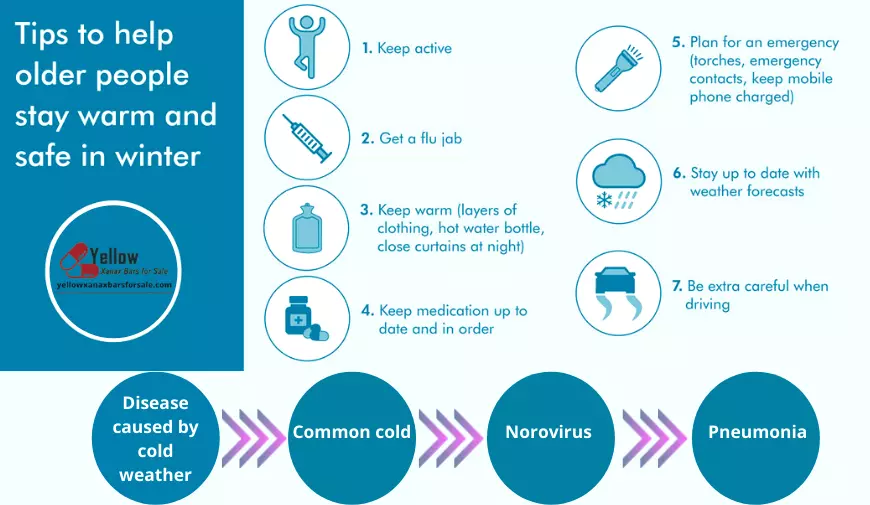
Winter tips during the COVID Pandemic
As we moan upon winter blizzard, it is pretty challenging to understand how this low temperature could benefit any health. But winter is the season in which your immunity can boost up. Cold temperature leads to decreased body temperature, and your body undergoes thermoregulation to adjust to the new climate.
Cold temperature. Flu viruses, changes in the amount of daylight, and inclement weather can all impact your winter well-being, making it more difficult for you to stay healthy and safe. Although winter comes with no surprise, many of us may not be ready for its arrival. But if you are fully prepared for the winters, you are more likely to enjoy it and stay healthy and safe when the temperature starts to fall.
But this year’s winter is different from recent years due to the outbreak of the new Omicron variant. And the best you can do for yourself is good health, support, and kindness. This year it becomes more necessary to stay safe and follow preventive measures to keep you and your family safe from the virus. Wash your hands regularly, get your vaccination done, Wear your mask, and avoid social gatherings to keep yourself safe.
Disease caused by cold weather
Winters is the season of celebrations, get-togethers, and also winter illness. It comes with celebrations, joys, happiness, winter flues, and other winter problems. People with low immunity power usually get sick with the change in seasons as the temperature change causes viruses to flourish, which then spread the illness.
During the low temperature, diseases can appear suddenly and leave you feeling lethargic and sluggish. For instance, you can get a sore throat that later turns into a severe infection, making it quite difficult to swallow food or drink water. In the winters, your body temperature decreases, and even mild illness takes to heal.
Here are some winter illnesses and simple ways to treat them.
Common cold
It is the most common problem or illness of winters. Almost every person suffers from the common cold during winters. It is often regarded as part and parcel of cold months as it is commonly widespread during this time. A cold and dry climate offers optimum conditions for the virus to replicate.
Common colds are annoying, but you can continue your daily activities. The symptoms of cold commonly fade away in two to three days. It can stay for a more extended duration than usual in rare cases. If this happens, take medical attention immediately. The common cold symptoms include runny nose, mild fever, malaise, sore throat, congestion, cough, mild headache, and sneezing.
Pneumonia
Pneumonia is another type of lung infection that is common in winters. This disease is commonly caused due to bacteria that give you mild to severe symptoms. You can treat mild symptoms at home, but the painful symptoms require proper medical help. People who have weak immunity, asthma, heart problems, or even cancer have a high chance of having pneumonia.
Some common symptoms of pneumonia include severe cough, high fever, vomiting, sweating, shortness of breath, headache, diarrhea, the purple coloration of the skin, and muscle pain.
Norovirus
It is an infectious illness that can occur to people of all ages and at any season. It is the most common problem in winter. Norovirus commonly causes diarrhea and vomiting, commonly called winter vomiting bug. The symptoms of norovirus may include vomiting, nausea, diarrhea, chills, fever, or stomach pain.
Winter health tips for students
Get a sleeping schedule.
Winters is the season of short days and long nights, which is the perfect season to sleep for a longer time. Students who enjoy the freedom of making their schedule, which means late nights. Make a regular bedtime schedule to get approximately seven to eight hours of sleep at night. It helps to promote mental and general health and heals from the illness.
Take healthy meals
Eating a healthy and balanced meal is essential to boost the immunity power of your body. You must include lean meats, fish, nuts, spices, whole grains, and fresh fruits and vegetables in every meal. Vitamin C is an excellent source to level up your body’s immunity. So, include fruits and vegetables rich in Vitamin C in your meals, like oranges or lemon.
Winter wellness tips during COVID
It is essential to keep yourself hygienic during the pandemic and keep the viruses and bacteria away from your body this winter season. So, when you go outside to meet someone or celebrate, make sure you follow all the precautions, such as washing your hands, social distancing, and wearing masks. To keep you and your family protected, getting your covid vaccination done is essential. If you have not got your vaccination done, do it immediately.
Avoid going out and restrict your travel plans. If it is essential to travel, follow all precautions and quarantine to avoid infections.
Winter health tips for seniors
Winters can be challenging for you, but senior people, especially those living in assisted facilities, are vulnerable to feelings of isolation and loneliness. Older people who have cardiovascular problems may experience more cold. So, make sure, heaters are correctly working to keep the room warm. They should always wear caps, gloves, socks, and mittens and have their hot water bottle with them.
The skin during the winters becomes thin; hence, it becomes difficult to wear lightweight layers. So, humidifiers are the best source to keep the air moist and clean air. It helps to reduce the cracking and redness of the skin.
Healthy eating in winters
In addition to changes in your energy bills and dressing style during cold days, your food choices, energy levels, and metabolism change drastically in winters. People love to spend all day in a warm and cozy room with their favorite food and drinks. They usually skip gyms and do fewer workouts. And these lifestyle changes in winters make it essential to look for eating habits.
The secret of staying healthy during winters is to normalize your eating habits. Here are some foods that you should try this winter.
- Soups or drink warm milk
- Cauliflowers and Broccoli
- Start your day with Porridge
- Take root vegetables
- Cheese, eggs, and fish










































